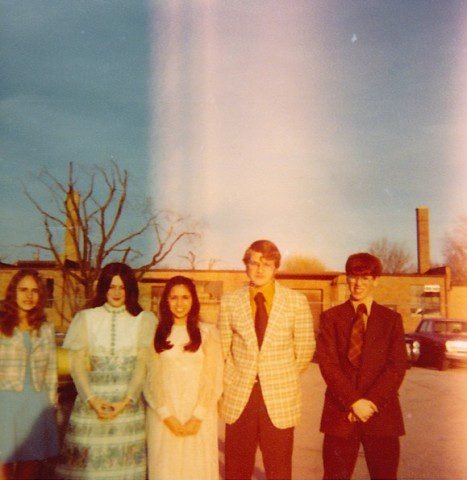
The Black Collar Crime Series relies on public news stories and publicly available information for its content. If any incorrect information is found, please contact Bruce Gerencser. Nothing in this post should be construed as an accusation of guilt. Those accused of crimes are innocent until proven guilty.
Zachary Radcliff, a youth pastor and music director at Oakwood Church in Ypsilanti, Michigan, was arrested and charged with one count of first-degree criminal sexual conduct, two counts of aggravated child sexually abusive activity, two counts of child sexually abusive activity and six counts of using a computer to commit a crime. Oakwood Church is affiliated with the Southern Baptist Convention. Radcliff is also a Christian rock singer, a supporter of Donald Trump, and has performed at several high-profile Trump events. His father, Frank, is the pastor of Oakwood Church. (Note the timeline of the alleged crimes. Radcliff has been preying on church teens since he was nineteen years old.)
A Michigan church youth pastor who moonlights as a Christian rock singer and has performed before high-profile conservative audiences has been accused of preying on teenagers in his father’s flock for more than 10 years.
Zachary Radcliff, 29, was fired Oct. 12 from his job as the music and youth director of Oakwood Church in Ypsilanti, an Ann Arbor suburb, 10 days after the Michigan State Police launched an investigation. His father, Frank Radcliff, is the church’s senior pastor.
“We realized while talking to him that there was more to the situation than was being expressed,” the church said in a statement posted on its website.
Zachary Radcliff was arrested over the weekend and charged with one count of first-degree criminal sexual conduct, two counts of aggravated child sexually abusive activity, two counts of child sexually abusive activity and six counts of using a computer to commit crime, according to court records. He was being held on $3 million bond.
“The investigation shows the alleged offenses have been occurring since as early as 2011,” the Michigan State Police said on its official X account, which noted that the alleged victims ranged in age from 12 to 17.
The date of offense for the charges against Radcliff is June 27, 2014, according to court records. The state police said that is because the majority of the alleged offenses happened around that time.
But the church, which is cooperating with the police investigation, shed more light on what Radcliff is accused of doing in its statement.
“The information that we received was shocking,” it said. “We were told that Zachary had been soliciting inappropriate photos and possibly videos from teens. We have also heard other stories. This information has ripped our hearts apart.”
Radcliff, who lives just south of Ann Arbor in the town of Saline, faces anywhere from 20 years to life in prison if convicted on the most serious charges against him, according to court records.
Oakwood Church released the following statement:
We received some very disturbing news about our music and youth director, Zachary Radcliff who is also the son of our senior pastor, Frank Radcliff. We realized while talking to him that there was more to the situation than was being expressed. He was suspended with pay on October 3rd, pending further investigation. More information was given to us on Saturday, October 12th, at 4:00 in the afternoon. Pastoral staff met with our church that evening and Sunday morning. Zach was terminated from his job, without pay effective Saturday, October 12th.
The State Police were notified by families that were involved and our church staff. We are not aware of the full extent of his crimes, and we are doing everything we can to cooperate with the ongoing police investigation.
The information that we received was shocking. We were told that Zachary had been soliciting inappropriate photos and possibly videos from teens. We have also heard other stories. This information has ripped our hearts apart. The safety and protection of the individuals in our church is what is paramount to us. We are devoted to doing what we can for the care of the victims of these crimes.
Every one of our staff members and individuals working with our children, teens, and adults go through background checks. We do our level best to make sure all are protected.
We have counseling that is being set up and provided for any youth or adults who have been impacted by this crime. What is being done will be provided to our church family in the next few days. Like you, our hearts are broken. We have a desire to serve our Master in this community, with the understanding that the church family should be one of the safest places we can be involved in. Part of that trust has been broken. Our commitment is to be completely transparent and do what we can to help with this investigation.
Anyone with additional information is asked to contact Trooper Ryan of the Michigan State Police Brighton Post at 517.899.6174
Bruce Gerencser, 68, lives in rural Northwest Ohio with his wife of 47 years. He and his wife have six grown children and sixteen grandchildren. Bruce pastored Evangelical churches for twenty-five years in Ohio, Texas, and Michigan. Bruce left the ministry in 2005, and in 2008 he left Christianity. Bruce is now a humanist and an atheist.
Your comments are welcome and appreciated. All first-time comments are moderated. Please read the commenting rules before commenting.
You can email Bruce via the Contact Form.











